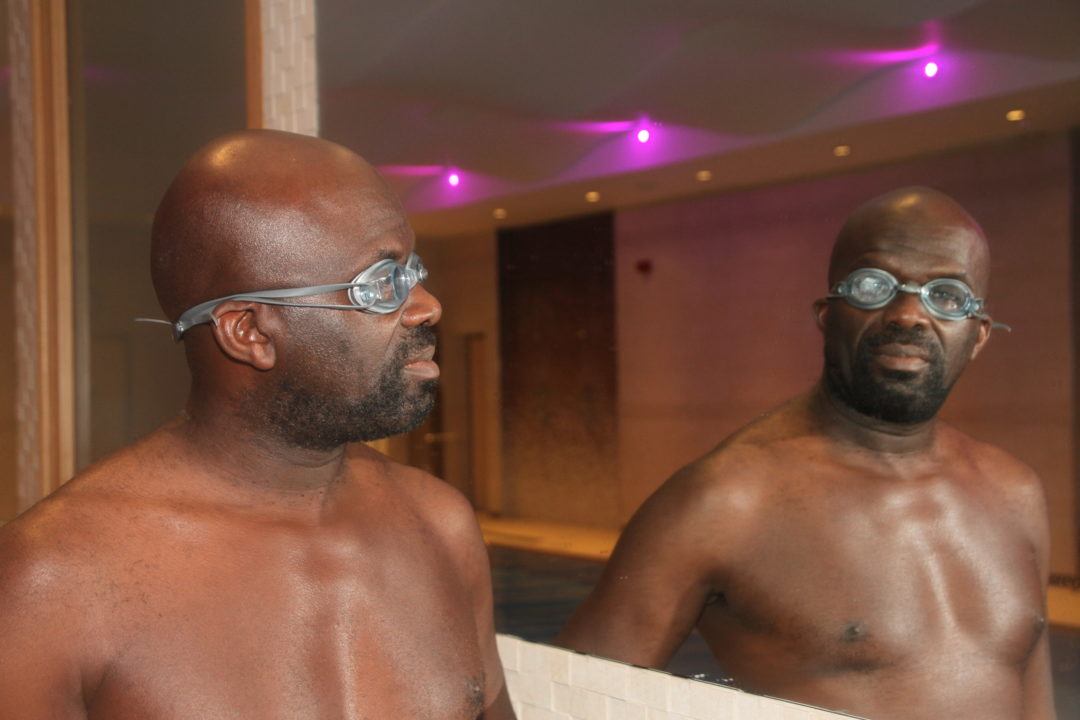
May
Challenging the Myth that ‘Blacks Can’t Swim’
Challenging the Myth that ‘Blacks Can’t Swim’ – 5 Questions with Filmmaker and BSA Co-founder Ed Accura
Ed Accura is a British rapper, songwriter, record/film producer and the founder of the Bear A Witness Homeless campaign
What inspired you to learn to swim and share your story?
I have been hiding behind the stereotype and myth that “black people can’t swim” for most of my life, because it was easier to do so than to learn how to swim. When my wife would suggest that I learn to swim, I would automatically respond with, “I will learn next year,” and she eventually stopped suggesting it. The turning point for me came when I realized that I could not help my daughter if she was ever in trouble while in or around the water. This thought scared me, and because I knew I wasn’t alone, I decided to learn to swim and share my experience with the world.
What was the biggest hurdle for you in learning how to swim?
Trusting the water. It took me close to six lessons to trust the water to support me and be confident enough to realize that I would not sink straight to the bottom of the pool. I figured that if huge ships can be supported by water without sinking, so could I.
Based on your research for the film, why are there such racial disparities in swimming ability?
I would sum it up to priorities, along with cultural, social and financial reasons.
What can African-American parents do to encourage their kids to learn how to swim?
Familiarize their children with swimming from a very early age, get them used to the pool and make it fun. My parents never saw the importance of swimming because they didn’t know how to swim themselves, and therefore didn’t identify that swimming is a life-saving skill.Additionally, education is a big factor. Studies show that if parents do not know how to swim, their children only have a 13 percent chance of learning how to swim. Parents have an undying love for their children and would do anything to protect them. This is reason enough to encourage parents to arm their children with a defense against drowning.
What can communities do to fight stigmas about swimming?
The only way you can beat the stigma is to fight it. The more we talk about it, the less taboo it becomes, and this is exactly what A Film Called Blacks Can’t Swim was designed to do.I have had the pleasure of working with numerous water safety advocates, and our joint goal is to show this film to as many children as possible. Our hope is that swimming lessons will be available to all children, so they gain a lifelong, life-saving skill.
I wish I would have had that opportunity when I was a child, because then I wouldn’t have missed out on that swimming has to offer for so long. But then again, if I had learned to swim at a young age, I wouldn’t have had the opportunity to make this film…they say everything happens for a reason!
Challenging the Myth that ‘Blacks Can’t Swim’ – 5 Questions with Filmmaker Ed Accura
Courtney Rose
This is an amazing post!
admin
Thank you! 🙂